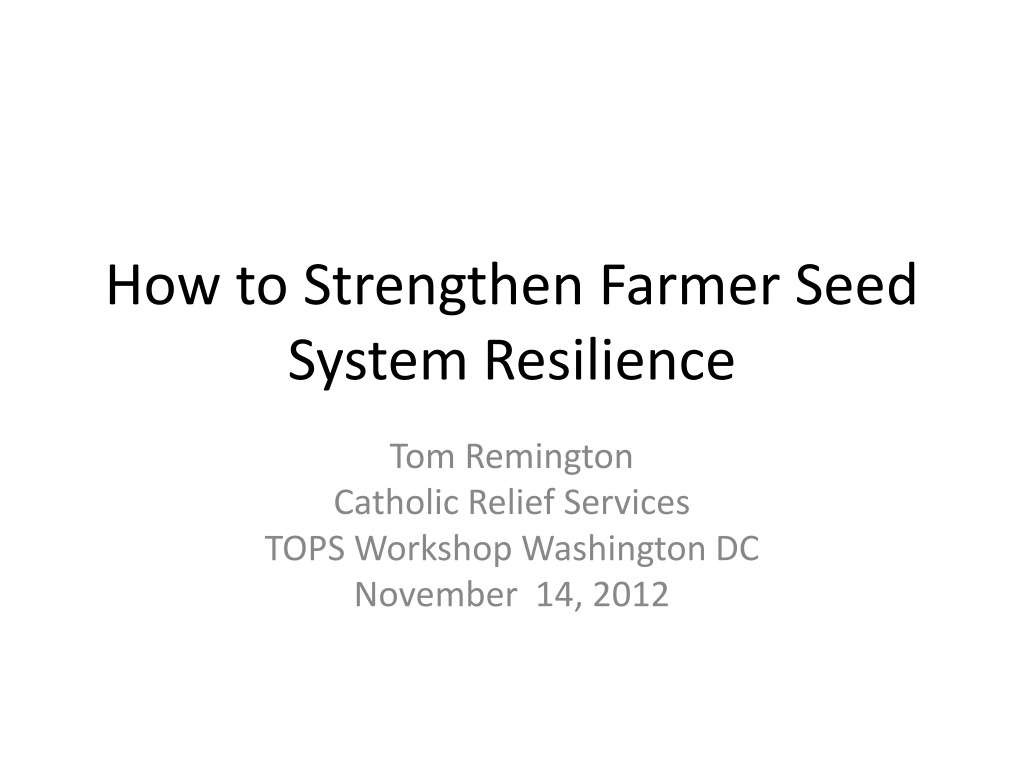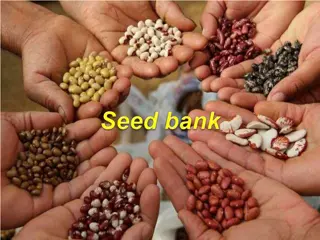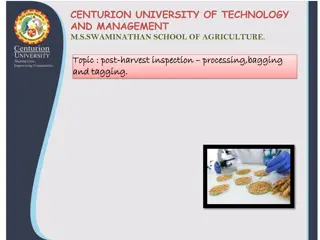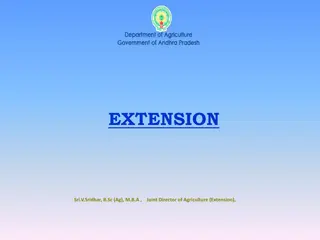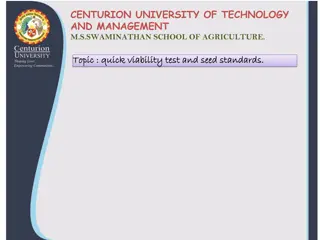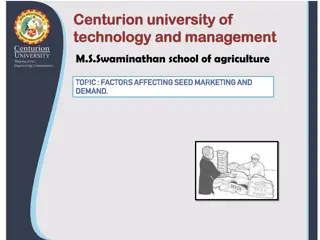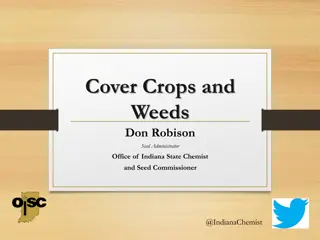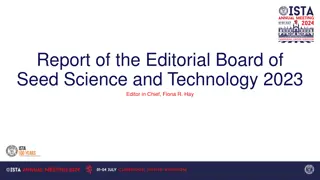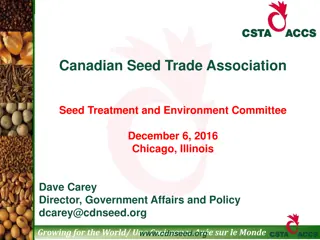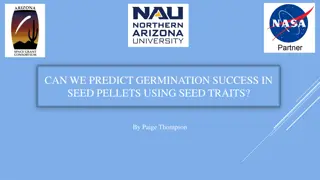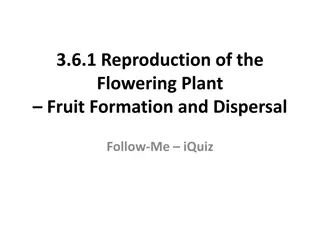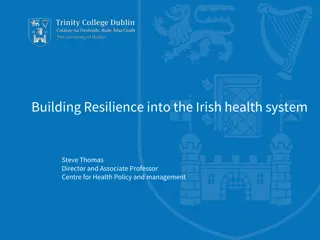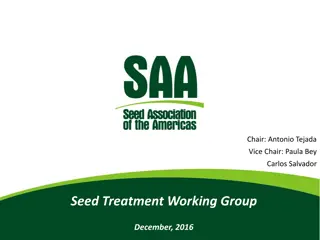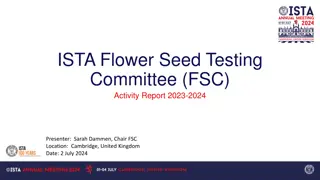Strengthening Farmer Seed System Resilience Workshop Insights
Explore key insights from the TOPS workshop on strengthening farmer seed system resilience, focusing on seed security, resilience parameters, and the connection between shocks/stresses and farmer seed systems.
Download Presentation

Please find below an Image/Link to download the presentation.
The content on the website is provided AS IS for your information and personal use only. It may not be sold, licensed, or shared on other websites without obtaining consent from the author. Download presentation by click this link. If you encounter any issues during the download, it is possible that the publisher has removed the file from their server.
E N D
Presentation Transcript
How to Strengthen Farmer Seed System Resilience Tom Remington Catholic Relief Services TOPS Workshop Washington DC November 14, 2012
Making Resilience Relevant The resilience debate has been dominated by an abstract discussion about how aid agencies should describe their work. In order to give more meaningful support to people whose livelihoods are precarious, far more understanding is needed about what kind of support is most effective and how this can best be delivered. HPG Policy Brief 49 September 2012
Shocks and Stresses Impact Farmer Seed Systems Drought Flood Conflict Pests & Diseases
Presentation Questions What are seed systems ? What is seed security ? What is resilience ? How can seed systems be made more resilient?
What is a Seed System? Both botanical and vegetatively propagated Interconnected rather than linear Seed intimately integrated with production Widely variable within and between cropping systems Women play a critical role
Seed Security Conceptual Framework Parameter Description Sufficient quantity of seed of appropriate crops available in proximity in time for planting Availability People have adequate income or other resources to purchase or barter for seed Access Seed is acceptable purity of adapted and preferred varieties Varietal Quality Seed is of acceptable cleanliness and viability Seed Quality There are diverse seed sources to meet farmers needs after shocks or stresses Resilience
The Six Parameters of Resilience Productivity Sustainability Stability Resilience Equity Diversity Autonomy
Resilience & Vulnerability The ability to adapt when confronting shocks and stresses The susceptibility to and inability to cope with shocks and stresses
Scale and Scope Macroregion Watershed Village Farm Crop System Field
Productivity 4.5 4 3.5 3 2.5 Hi 2 Lo 1.5 1 0.5 0 Land Labor Cash
Sustainability Trends 5 4 3 2 1 0 1 2 3 4 5 Sustainable Unsustainable
Stability Shocks 6 5 4 Stable 3 Unstable 2 1 0 1 2 3 4 5
Equity Intra-Household Inter-Household Gender
Autonomy Independence Self Sufficiency Freedom Choice
Seed System Security Description & Diagnosis Recommend Interpret Analyze Assess
Productivity & Sustainability More than Varieties & Seed Fertilizer Use 250 Integrated Nutrient Management Irrigation & Drainage Pest & Disease Control Storage Marketing 200 150 Fertilizer Use 100 50 0
Diversity & Stability Farming System Integrated crops and animals Cropping System Multi- & inter- cropping Variety Addition & substitution Seed Ensuring multiple sources
Equity & Autonomy Farmers at the center as seed managers Farmer customer segmentation Critical role of women Access & choice: Own saved seed Social network Market Commercial
Supporting and Empowering Farmer Seed Managers Once farmers have the variety, the economic gains from using certified seed of the self pollinated crops usually does not justify the investment. Moreover, certified seed is not always better quality than the seed reproduced by a farmer (Almekinders & Louwaars, 1999)
Conclusions Resilience is the right approach There is a need to go beyond defining to applying resilience in practice Strengthening seed systems can increase resilience Resilience needs to be applied to other agricultural subsectors
